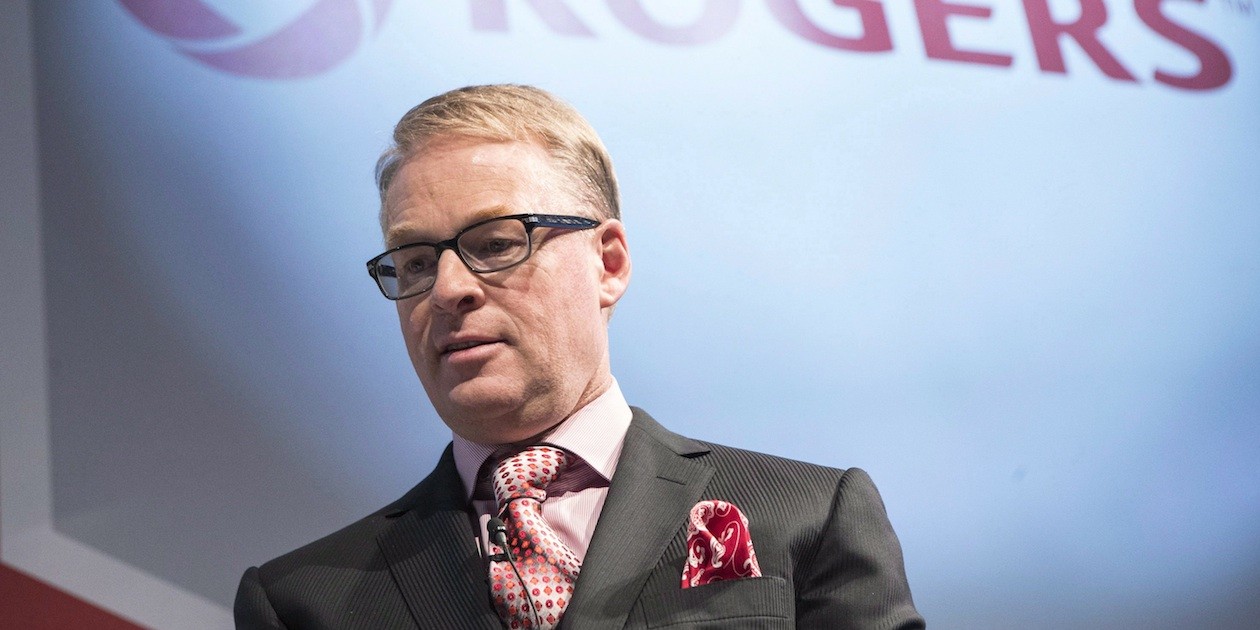While predicting a sea change in how Canadians get their TV programming, one of the country’s biggest cable-service providers rejects the idea of allowing viewers to pay for television channels one at a time.
Any small basic service Rogers offers must include ABC, CBS, NBC, Fox and PBS…These signals are freely available over-the-air in most of the markets we serve.
Pam Dinsmore, Rogers
Rogers Communications* has told the country’s broadcast regulator it agrees with a proposal to offer its customers a smaller basic service.
But it says the price for that service should not be capped and it should include channels from the major American TV networks, not just the Canadian ones.
Rogers’ presentation to the Canadian Radio-television and Telecommunications Commission on Thursday highlighted the growing divergence among cable and satellite TV service providers on how to reshape the television landscape.
It also helped to reveal the complexity of the job faced by the CRTC in figuring out how to regulate the broadcasting system while providing consumers with more choice and possibly lower costs.
Rogers said while it agrees with a proposal to offer a smaller basic service, it can’t leave out the U.S. networks.
“Any small basic service Rogers offers must include ABC, CBS, NBC, FOX and PBS,” Rogers vice-president Pam Dinsmore told the commission.
“These signals are freely available over-the-air in most of the markets we serve.”
The company said it could not agree to a cap on the price of any so-called “skinny basic” service, warning that such a cap would stifle innovation and prevent it from improving its networks.
The CRTC is holding two weeks of public hearings on how people receive TV programming and how they pay for it.
One proposal on the table, which is being promoted by the federal government, would establish a so-called pick-and-pay system.
The proposal, if enacted, would allow consumers to select individual channels, on top of a smaller basic service of Canadian channels.
The CRTC is also debating the notion of capping the cost of that basic service at between $20 and $30 a month.
In its submission to the regulator Wednesday, Bell Media said it would be prepared to offer a skinny basic service, and give its customers a choice of channels beyond that on an a la carte basis.
And while they gave no opinion on whether the cost of basic service should be capped, Bell executives made clear that they would be hard-pressed to offer the service for less than $27 a month – the rate charged by Quebec’s Videotron for its already trimmed-down basic package.
Bell also said the U.S. television networks should not be included in skinny basic.
What the two companies agree on is a need to reform regulations to encourage the production of more high-quality Canadian content.
And they both warned against any rules that would leave them at a competitive disadvantage with new online video services such as Netflix.
Rogers slammed a proposal to include the online revenues of broadcasters in the definition of broadcasting revenue.
That would put Canadian online services, such as Rogers’ Shomi, at a competitive disadvantage with non-traditional online broadcasters, said Rogers executive Keith Pelley (pictured).
“Taxing new Canadian online services like Shomi, while giving Netflix a free pass, would not address concerns about declining contributions to Canadian programming,” Pelley said.
The Ontario and Quebec governments, along with the CBC and cultural organizations, have suggested that the CRTC regulate Netflix and other online video services to force them to contribute to the television content production system.
But the Harper government has warned the CRTC that it will reject any attempt to create what it has dubbed a “Netflix tax.”
Rogers also sided with Bell in denouncing a proposal to ban the simultaneous substitution of Canadian advertising for American ads.
Either option being proposed for banning the practice “would devastate the conventional TV sector in Canada,” Rogers said in its submission.
Rogers executives at the hearings predicted that Canadians will eventually get all of their TV programming over the Internet.
In the meantime, they urged the CRTC to give them the regulatory tools they need to deal with the transition from traditional broadcasting.
The hearings are scheduled to continue until Sept. 19.
* Rogers owns Marketing and MarketingMag.ca











